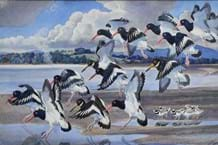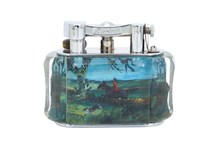Clinton Howell, the New York dealer in English furniture and NAADAA member, conceded the antiques trade faces an uphill battle in its efforts to convince US policy makers of the differences between antique and new elephant ivory.
"Broad sweeping laws designed to appeal to the public's sense of frustration over something as tragic as the extermination of the elephant are not an answer to the problem. What is needed are specific measures that focus on the why and how of elephant exploitation.
"As an antiques dealer, I have to say that the new rules come across largely as publicity stunts, not meaningful solutions, incidentally denying the cultural significance of this revered material throughout history."
He is working with NAADAA president James McConnaughy on a response to the February 11 announcement, including proposals for an active database of ivory works of art that would allow genuine antiques to be traded with a 'passport'.
BADA and LAPADA, whose members value the US market above all others, are keen to assist their colleagues in America in trying to bring a sense of proportion into any new restrictions. Sarah Percy-Davis, chief executive of LAPADA, stressed the need "to safeguard the interests of antique dealers from undiscriminating legislation that will make the import of any antique incorporating ivory to the US untenable".
"We need to inform decision makers that ivory is not limited to carved figures or mounted tusks, but extends to use in items as diverse as portrait miniatures, tea caddies, barometers and medieval reliquaries," said BADA secretary general Mark Dodgson.
"We will also point out that it is not sales of genuine antiques in the West that is fuelling the largest demand for new ivory, but the insatiable and undiscerning appetite of Chinese and South-East Asian buyers."
At the London Conference on the Illegal Wildlife Trade held on February 13, the foreign secretary, William Hague, said that the UK would go further than its earlier commitments and promised that the UK would support the CITES commercial prohibition on international trade in elephant ivory, until the survival of elephants in the wild is no longer threatened by poaching. Mr Dodgson understands that, despite these remarks, there will be no change to the existing provisions on the sale, import or export of worked antique ivory, as allowed for under existing CITES rules.





